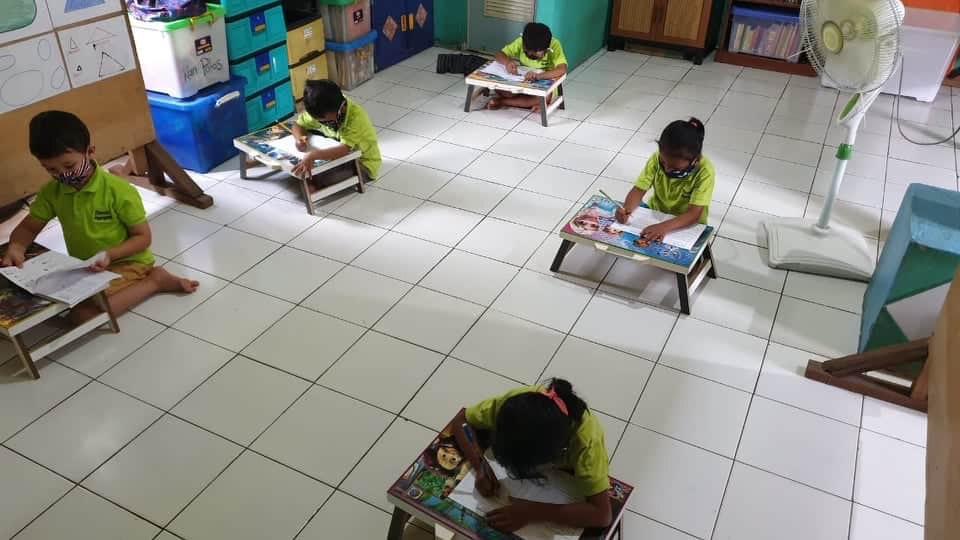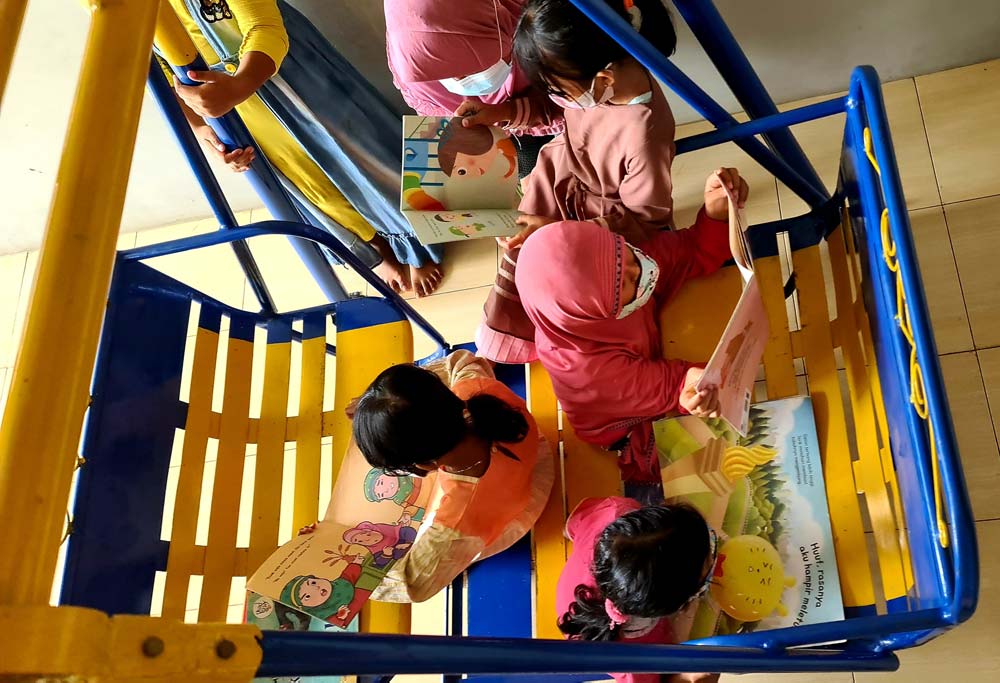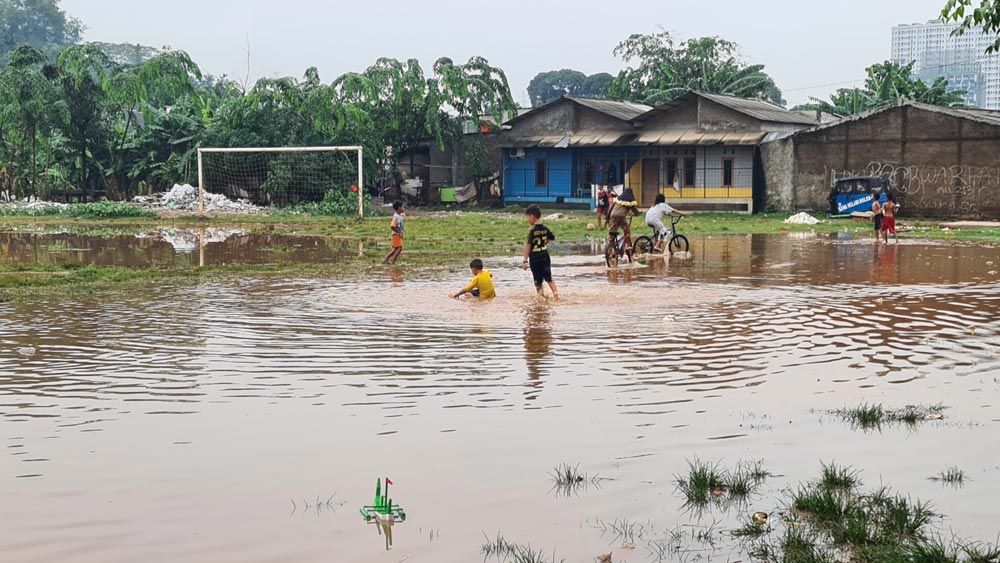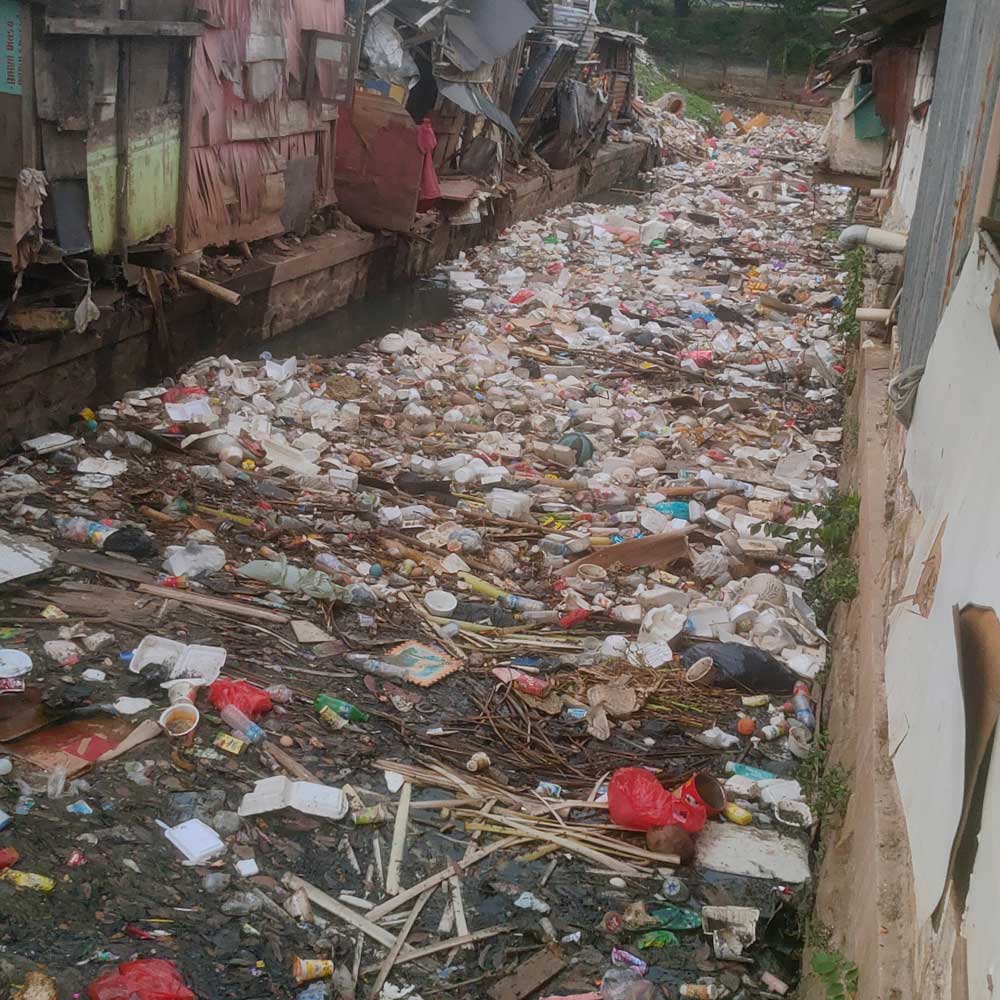In Word and with Power
In a slum community in a large Asian city, Yosiah and Anita Rahma have gained their community’s trust through deeds of love. Now they ask, “How do we proclaim the gospel holistically?”

Children at House of Hope in Southeast Asia work on a school assignment. All photos courtesy of author
By Anita Rahma* (Pseudonym used for security)
As followers of Jesus, we have the “priestly duty of proclaiming the gospel of God” (a phrase Paul uses in his letter to the Romans 15.16). He continues by saying: Therefore I glory in Christ Jesus in my service to God. I will not venture to speak of anything except what Christ has accomplished through me in leading the Gentiles to obey God by what I have said and done – by the power of signs and miracles, through the power of the Spirit (Romans 15. 18-19, emphasis added).
What does it mean to proclaim the gospel, the good news? How do we do so holistically as Paul speaks of—with words, deeds, and power?

House of Hope proclaims the love of Jesus mostly through deeds. Anita and Yosiah hear the call of God to also proclaim the good news in word and with power with their neighbors.
Having only been “on the field” for seven years, I still feel very under-qualified to answer this. I am a beginner. This is the irony: the more I learn, I see there is more to learn. Perhaps seven years ago, a fresh graduate from Eastern Mennonite University, I had more answers. Now, after these years of following Jesus among the poor of Asia, I have more questions than answers.
How can I share the good news of the kingdom of God with my Muslim neighbors? They are born into a folk-Islam belief system, complex beyond my comprehension. Fear of evil spirits and ancestral spirits binds them with countless rules about bathing, diet, pregnancy, prayers, and every manner of life. It binds them literally with amulets, coconut brooms, knives, and Arabic prayers placed around their homes for protection. We are encountering not just Qu’ranic Islam here. This is different: Muslims who have never read the Qu’ran, but can chant in Arabic (a language they do not understand). Friends who may or may not adhere to any of the teachings of Islam (such as sholat prayer, wearing a head covering, going to a mosque), but who could never imagine being anything other than Muslim. How can we share Jesus with them?
Proclaiming the good news in deeds often seems like the easier thing (we Mennonites seem to be expert at this part). Our team has done a reasonable job of sharing God’s love by our actions, through our presence and sharing our lives in the slum. Through our daily free school “House of Hope,” we have affected 200-300 children’s lives over the past five years. Our health program helps many who are sick with tuberculosis. More recently, I began meeting weekly with a community prenatal group.
The neighborhood knows we love them and want to help improve people’s lives. People know we live here and do what we do because we are followers of Jesus.
We have gained the trust of the slum. But now God’s invitation to us is: How do we move beyond this good foundation laid by deeds and make sure we are also proclaiming the gospel in word and with power? One way we can witness is through offering to pray for people. I see prayer as one way of using words and opening the opportunity for God to make himself known with power. Over the years, we have prayed for many people. No one has ever rejected our offer to pray for/with them. For many, this is the first time anyone has actually been prayed for in their own language, for their specific needs (as opposed to a memorized rote prayer in Arabic).

Flooding is common in certain areas of the slum. This lake is normally a field.
I visited Mama Bule in February. Her home is in the flood-prone area of our slum. She was nine months pregnant, expecting her third child to arrive any day. We sat together in her shack, which was still flooded twelve inches at the front and knee deep at the back from recent rain we had (I wore my mud boots). This particular day that I visited I asked if I could pray. Pray for a safe delivery. Pray that the baby would come not during a rain storm. (How would they get to the midwife?) I prayed for protection, health, love, and guidance for their family.
Another way we proclaim in word is by telling stories. We live in a context of people who do not read. Most people are literate, but reading is something one does only when necessary. So how do we share the Bible? Well, the same way it was originally shared: orally. We look for opportunities to tell stories about Jesus throughout our day-to-day life. A few years ago my teammate Tina* and I had a weekly women’s gathering, telling stories of women from the Bible. It lasted for six months but eventually stopped due to Tina returning home. Please pray for wisdom and guidance about how to start such a gathering again.
But the most important thing to remember about proclaiming the good news is that we must do so in the power of the Holy Spirit. We do not labor on our own strength or according to our own whims. We must be listening to the Spirit. And we pray that the Holy Spirit will make God known through visions, dreams, healings, and other miracles.
Finally, I cannot proclaim the good news if I am not living in it, experiencing God’s grace for myself each and every day. God wants lovers, not workers. A lover will outwork a worker any day. God wants me to follow him, to know him, to love him! And then, out of that relationship, the rest will follow. We must daily soak in Christ’s love for us—and out of that love we can then proclaim the good news of God’s love to the world: in deeds, words, and power.

Trash and mud are the daily existence of the people living in the Asian slum community where Anita and Yosiah Rahma live. How is the good news proclaimed here?
Anita serves in a slum community with her husband Yosiah and two sons. They serve with Servants to Asia’s Urban Poor, in partnership with Virginia Mennonite Missions.
